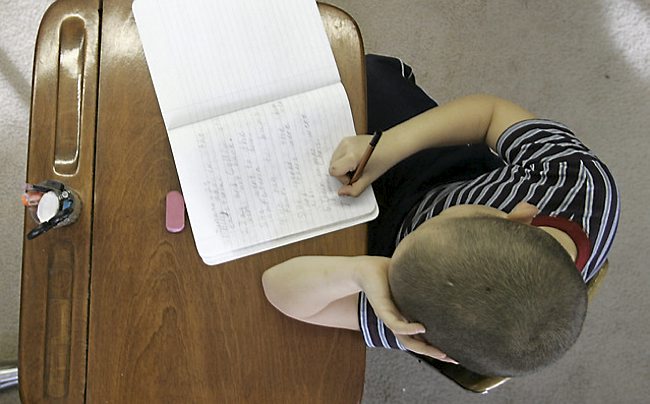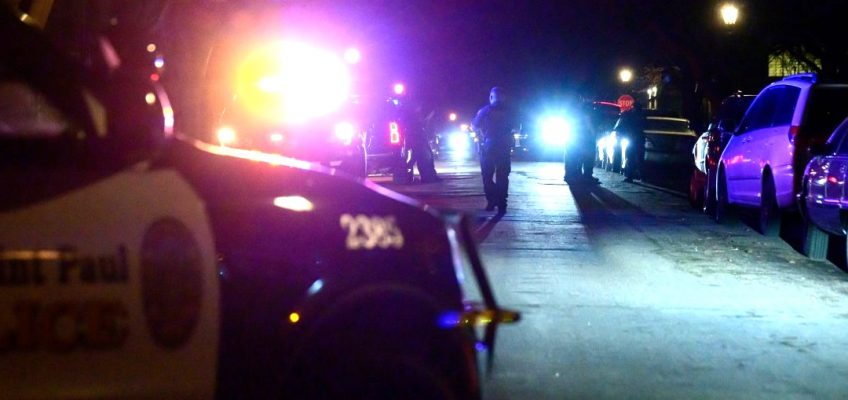More money?
On Nov. 4 many of us are going to vote yes or no to our proposed school referendums. I don’t have the answer for you, but after teaching 40 years, 15 in private and 25 years in public high schools, I have some thoughts.
1. Children learn because parents have taken the time from age 3/4 through 4th or 5th grade to foster an ability and love of reading, and basic math skills. This is done on a regular almost daily basis; not every couple of weeks.
2. As a student is in middle and high school their peer group is very important. Parents should monitor their child’s peer group.
If there is little or no push/help from home to improve student performance more money may or may not be the answer.
John Heller, North St. Paul
There are uses more special than this
President Trump has decided that the White House needs a ballroom addition. The dining area of the White House is indeed small.
But why can’t the president use another government building for gathering? Why spend $250,000,000 on a “special”-use-only addition?
How many units of housing and treatment centers for this country’s disabled and homeless veterans could the government build for $250,000,000? Even if the money is being donated by private parties, this seems to me to another special interest waste.
Tom Mullaney, Woodbury
Great memories of Mr. Mauer and the ‘boys’
As a Humboldt High School student during Ken Mauer Sr.’s tenure as football coach, I vividly remember his young sons along the sidelines during games. I was lucky to see a couple of those city championships under Mr. Mauer and be a cheerleader in the late 1960s. We always knew the “Mauer boys” would be there running around and throwing the ball back and forth. The article (“Nearing the end of their career, officiating is still a Mauer family affair”) brought back great memories of Mr. Mauer, St. Paul football games at Central High field, and the wonder of crisp fall evenings cheering on our team.
The story also reminded me exactly how old I am now that those “boys” are now in their late 60s!
Thanks for a great story.
Janet Grieder, Maple Grove
Third grade is too early
We have a vote on Nov. 4 in many of our districts, to increase our property taxes to give more money to schools. I believe it would be best if we start scaling back all the added programs that since implemented our children’s education has declined.
Minnesota ELA Standards Review Committee has added a new program for us to spend money on beginning in the 2025-26 school year
Minnesota ELA Standards Review Committee updates to the English Language Arts standards, specifically benchmark 3.2.1.3, which introduces the use of male, female and non-binary gender pronouns in third grade writing instruction.
While I understand the importance of inclusivity and representation, this is not age-appropriate; how could you possibly teach this without bringing up the sexual nature of why we use pronouns? Many of our children are currently struggling to meet basic literacy benchmarks — reading and writing at grade level remains a significant challenge for a large portion of students across the state. Introducing complex and often controversial language concepts at such an early stage may further burden students who are still developing foundational skills.
Additionally, public education serves families from a wide range of cultural, religious and philosophical backgrounds. When curriculum content touches on deeply personal and value-based topics — such as gender identity — it is essential that schools remain neutral and respectful of the diverse beliefs held by families. Matters that may conflict with a family’s values should be left to parents to address at home, not mandated in public classrooms.
I am deeply concerned that introducing such topics prematurely may contribute to confusion, anxiety and emotional stress among young learners. Our shared goal should be to foster a safe, supportive and academically focused environment for all students.
Karla J. Nelson, Maplewood
Lacking leadership
We have two excellent mayoral candidates in Yan Chen and Kaohly Her. I’ve had extended conversations with both regarding transit and development in our City of Saint Paul. Their ideas are thought through, and I particularly like their emphasis on community engagement, particularly with District Councils, and financial responsibility.
I oppose Melvin Carter for many reasons. He’s been mayor for seven-plus years and lacking in leadership and has basically been invisible in neighborhoods of our city. The disintegration of downtown didn’t happen overnight with the death of a major developer, Jim Crockarell. The funding of St. Paul’s government has now shifted to residential property taxes with diminished property values in downtown. We now have the (regional) FCC garbage truck facility on the Mississippi River bluff that will pay significantly less in property taxes than if it were developed residential.
When I attended the town hall at the Highland Park Community Center on Oct. 15 for a vision for the Mississippi River co-sponsored by Friends of the Mississippi River, St. Paul Bird Alliance, Highland District Council, West 7th/Fort Road Federation, West Side Community Organization, his lengthy and wandering responses to most questions centered on the rights of property owners and ignored the question asked. He has done nothing about riverside development for seven years other than outlining how St. Paul’s vision has lagged behind other urban centers nationally. At this writing we don’t even have lights along Shepard Road.
Last week I read that there will only be cosmetic enhancements to West Seventh Street/Highway 5 due to Commissioner Ortega’s withdrawal and reallocation of county funding, the Minnesota Department of Transportation’s lack of priority, and Met Council’s competing bus-rapid-transit interests. And to the lack of leadership (vision?) on the part of the City of Saint Paul. Add to that Ortega’s anger since we defeated his pet project of streetcars.
Jos. F. Landsberger, St. Paul
Related Articles
Attempted carjacking in St. Paul leads to gunfire Friday night; one injured
As Stillwater wrestles with cannabis shop locations, what are other east metro cities seeing?
Joe Soucheray: Trump lacks grace — and permission — in his destruction of East Wing
Como Park Zoo & Conservatory issues last call for Mold-A-Rama magic
Vandals destroy dozens of trees along St. Paul’s Shepard Road — again




